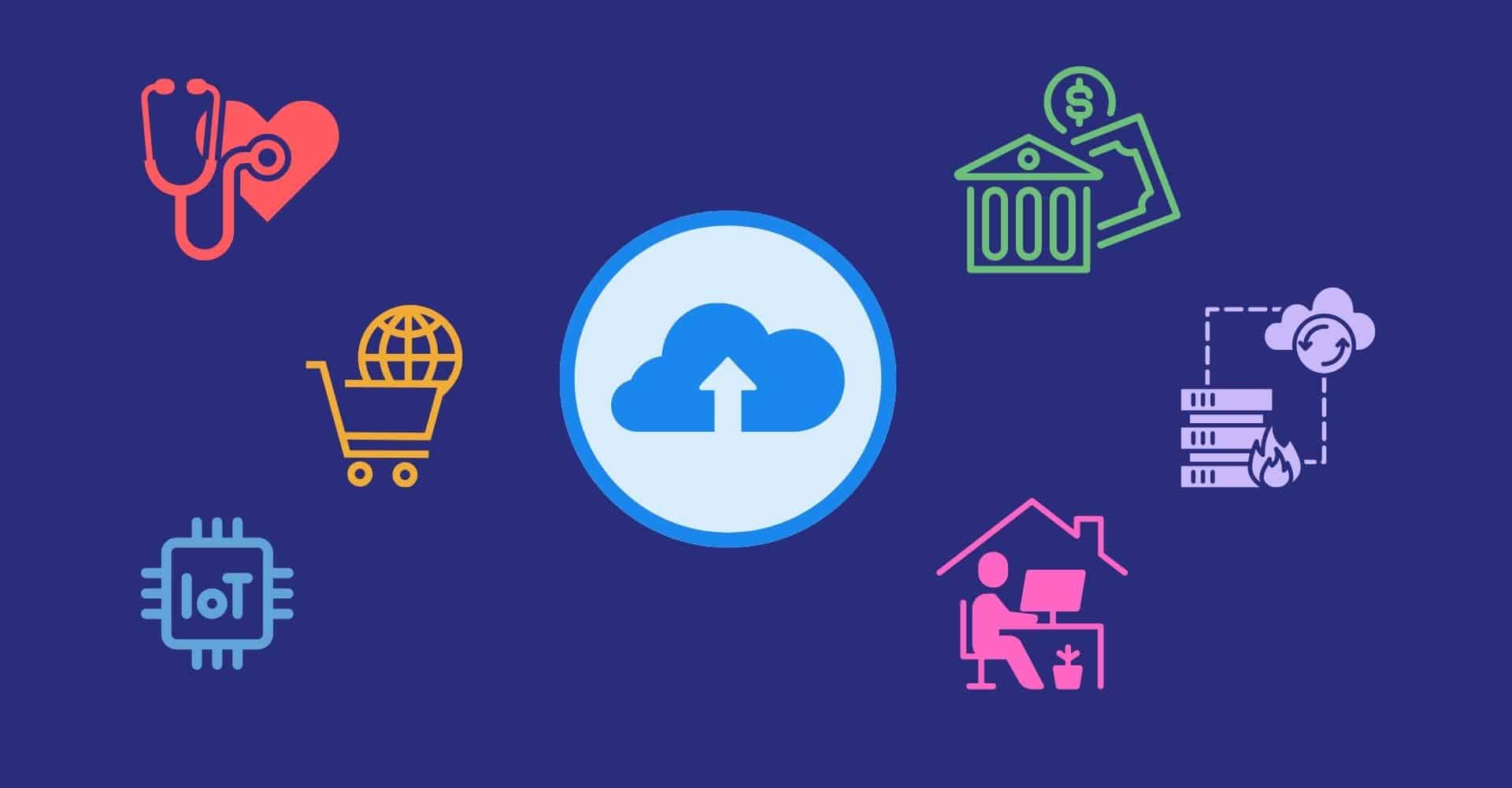Cloud computing has evolved as an essential element of modern business, providing a wide range of scalable, efficient solutions that are reshaping sectors. So we delved into a variety of real-world examples to demonstrate cloud computing’s critical role in industries such as healthcare, finance, e-commerce, and others. We can see how organisations are leveraging this technology for data management, scalability, and cost-efficiency, as well as how it is reinventing customer experiences, streamlining operations, and enabling remote work.
Healthcare: Revolution of Patient Care
In healthcare, cloud computing is a game-changer. It enhances patient care, improves data management, and facilitates ground-breaking research. Electronic Health Records (EHRs) on cloud platforms, like those adopted by the Cleveland Clinic, offer real-time, location-independent access to patient data. This technological leap is vital for telemedicine, enabling remote diagnostics and consultations, thereby expanding healthcare accessibility.
Cloud computing also accelerates research. For instance, cloud platforms facilitate genomic sequencing, driving advancements in personalised medicine. These platforms handle vast datasets efficiently, speeding up the research process and aiding in the development of targeted treatments.
Finance: Ensuring Security and Scalability
The finance industry benefits greatly from the enhanced security and scalability offered by cloud computing. Major financial institutions, like JPMorgan Chase, use cloud technologies for improved data analytics and customer service. The cloud’s ability to scale allows financial organisations to efficiently manage large volumes of transactions, while robust security features ensure the protection of sensitive financial information.
Additionally, in the fintech sector, start-ups are leveraging cloud services to provide agile and innovative financial solutions. This application of cloud computing is crucial for promoting financial inclusion and disrupting traditional banking models.
E-Commerce: Customising Customer Experience
In e-commerce, cloud computing is a key driver of customer experience and operational efficiency. Amazon’s use of cloud infrastructure to handle extensive product inventories and maintain high service levels during peak shopping periods is a prime example. The cloud’s powerful data processing capabilities enable personalised shopping experiences, using AI and analytics to tailor product recommendations, leading to improved customer satisfaction and loyalty.
Beyond enhancing customer interaction, cloud computing also streamlines various aspects of e-commerce operations. It simplifies inventory management, order processing, and logistics, ensuring that businesses run smoothly and efficiently.
Remote Work: Facilitating New Work Cultures
Cloud computing has been a cornerstone in the shift towards remote work. Platforms like Microsoft Azure and Google Workspace have enabled effective collaboration among remote teams, allowing for secure, real-time sharing and access to resources. Cloud-based storage and communication tools, such as Dropbox and Slack, have become fundamental in maintaining productivity and team cohesion in remote work environments.
IoT and AI: Pioneering Smart Solutions
The integration of the Internet of Things (IoT) and artificial intelligence (AI) with cloud computing is driving innovation and efficiency across various sectors. In agriculture, for instance, cloud-connected IoT devices provide real-time monitoring of crop conditions, leading to optimised resource usage and improved yields. In the manufacturing sector, AI algorithms analyse data to predict maintenance needs, significantly reducing downtime and operational costs.
Disaster Recovery: Safeguarding Business Continuity
Cloud computing plays a critical role in disaster recovery, ensuring business continuity in the face of disruptions. By utilising cloud-based data storage, businesses can protect themselves against data loss due to system failures or natural disasters. Cloud-based backup and recovery solutions offer quick data restoration capabilities, which are crucial for minimising operational disruptions and maintaining business continuity.
Inspiring Innovation and Growth
Cloud computing is a catalyst for innovation, driving growth across industries. Its scalable, flexible, and cost-efficient solutions empower businesses to focus on innovation and customer satisfaction. As its transformative impact continues to unfold, cloud computing will remain a key driver of business and technological advancement, inspiring new possibilities and efficiencies.








